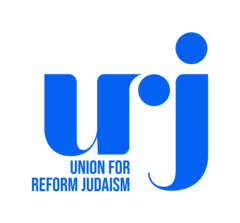Bo 5780
Bo 5780
Our Torah portion, Bo, continues the story of the battle between Moses and Pharaoh. Seven plagues have already struck Egypt. Parshat Bo begins with the threat of the eighth plague, locusts. שלח את עמי, let my people go! Moses tells Pharaoh. Pharaoh bargins. He haggles. He hondles. He will let the men go, but not the women. He will let the women go but not the children. He will let the children go, but they must leave all of their possessions behind.
Each time he does so, a plague comes down upon Egypt. Most of Pharaoh’s servants have realized that they are playing a losing game. They advise Pharaoh to cut his losses and get out. Pharaoh does not want to admit defeat. He agrees to let the people go, the current plague ends, and he begins to bargain again.
We know how the story ends. It ends with the death of the firstborn, with Pharaoh sitting, stunned, in his palace. He summons Moses and Aaron and tells them to go. Take whoever they want. Take whatever they want. Do as you have said, and go.
It is a wonderful story, and we know it better than we know most of our Biblical stories, because we find in the Hagaddah we read every year on Passover. But there is one key word that we often skip when telling this story.
Moses does not just tell Pharaoh ‘Let my people go.’ He says ‘שלח את עמי,’ but that is not the end of the sentence. The entire sentence is: ‘שלח עמי ויעבדני,’ Let my people go that they may serve Me.’
Freedom is not an end in itself. We want to be free, but free to do the right thing. Free to become better people. Free to make the world a better place. Free to serve Gd.
We talk about this country being the land of the free, but what do we mean by ‘freedom?’ Do we mean just the ability to do whatever we want? That hasn’t worked out so well for us.
We have a dysfunctional government. We have sharp divisions between people with different political, social, and geographic positions. The distance between rich and poor is huge, and getting bigger. Fewer people are getting married, and many married people don’t stay together. We have vast numbers of young men living with their parents and spending their time playing video games. There are many people who spend their time watching other people play video games. Fewer and fewer people consider themselves to be religious.
People want to be free. A lack of freedom means that other people choose what is important, and you have to do those things. Freedom means that you choose the things that are important, and you make a commitment to them. It doesn’t mean not to have commitments. Do the Israelites get to choose their own commitments?
When Gd tells Moses that the final plague is coming, He also gives instructions on how to perform the Passover sacrifice. The people are not being forced to build the cities of Pithom and Rameses any more, but they do have jobs to do. They have left the assignments of the Egyptians to undertake the assignments of Gd. That may seem, at first glance, an equal trade. The Egyptians forced the people to to this. Judaism forces them to do that. Before the Exodus, we had to work all day. After the Exodus, we couldn’t eat bacon. It is not an equal trade.
The slavery of the Egyptians was a commitment to the physical. We put bricks on top of other bricks for the glorification of Pharaohs, and those bricks would one day come tumbling down, the cities ruined and buried in the sand. The work we do for Gd is a work of the soul. Yes, we do physical things, like come to services, like eat certain foods and avoid others, but the work that we do points to holiness. It glorifies love, it glorifies meaning, it glorifies Gd.
We had no choice when we were slaves in Egypt. But now we can choose to serve Gd or serve ourselves. To serve Gd is to serve the children of Gd. It is to protect the earth and comfort those who are in pain. If we choose to do that, there are things we must do. There are commitments we must keep, standards we must uphold. Our choice, but once we choose, we must stick to it. Otherwise we are just putting bricks on top of each other, and mostly for the benefit of others.
In this week’s Torah portion, we are set free. Not free to misbehave. Not free to be lazy. Free to be the best people we can be. Free to help others. Free to make this world holier. We are still working on it.
Rabbi Thomas A. Gardner
Riverdale Temple
4545 Independence Avenue
Bronx, NY 10471
718-548-3800 x4
rabbigardner@riverdaletemple.org
Mon, May 20 2024
12 Iyyar 5784
Today's Calendar
: 12:30pm |
Upcoming Programs & Events
May 20 |
May 21 |
May 21 |
May 22 |
May 23 |
View Calendar


